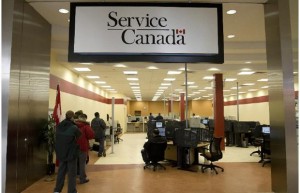You Have to Pay TAX, Even If You Are Unemployed
Working people who got laid off in any tax year and are eligible for Employment Insurance are liable to pay income tax. Employment Insurance payments are fully taxable to the person who receives the EI.If someone is expressing surprise to owe taxes after receiving EI, are certainly not aware of the Canada’s tax policy.
EI insurance payments are mostly about $800 per two weeks and depending on your family situation, you might not owe any taxes in each pay period. But when you add that up for 30 weeks, your gross income exceeds your personal exemption amount and the income become taxable. Usually, EI recipients think their income is so low, they need all the money to pay bills and survive and request for exemption from source deduction to Service Canada. Some EI recipients also need to supplement their EI income with part time jobs. Earnings from part time job, is also 100% taxable. Then again, per paycheck amount might not be large enough for source deduction, but they reach the taxable threshold amount when you count the annual income.
If your employer or Service Canada did not deduct any source deduction or it was less than, your tax bill, you will be responsible for the difference.
There is a big misconception among Canadian Tax Payers about their Tax bill. Specially people with lower income, when they have to pay tax.
The tax payable consists of four components:
1. Federal Income Tax
2. Provincial Income Tax
3. Canada Pension Plan Contribution
4. Employment Insurance Contribution
Your income might be less than the personal exemption amount, but you still have to pay tax. This amount usually is not INCOME TAX. It’s mostly your contribution to CPP, EI and may be some provincial tax.
It is smart to be aware of your tax liability. Because even if you are on EI and you have to pay tax, you must pay it on time. Otherwise, it will multiply in compounded interest to a much larger amount very soon. If you think your Credit Card company is a loan shark, you will be surprised to know how much CRA charges you in interest.
There have been many cases, where taxpayers had a relatively small tax debt, but they have accumulated 10 times in arrears interest balance. If you are in financial distress, you could apply for relief from interest owning to CRA. If you can get a tax expert on your side to apply for relief from CRA interest on your tax debt, you will have greater chance to get your request approved. Last fiscal year, CRA got application for 86,709 interest relief request, but granted only 42,416 requests in full or part.
As per Canada Revenue Agency – If an individual’s personal income tax debt remains unpaid with no mutually acceptable payment arrangement, the CRA may take legal action such as garnisheeing sources of income, seize personal bank accounts, Canada Pension Plan benefits, Old Age Security benefits and even EI benefits to satisfy your tax debt.
It is strongly advised that you do not put yourself in this kind of extreme situation, where CRA starts to garnish your sources of income to pay your past tax debts.
If you are any way behind or having a hardship to meet your tax debt obligation, consult an expert Tax Advisor.

Leave a Reply